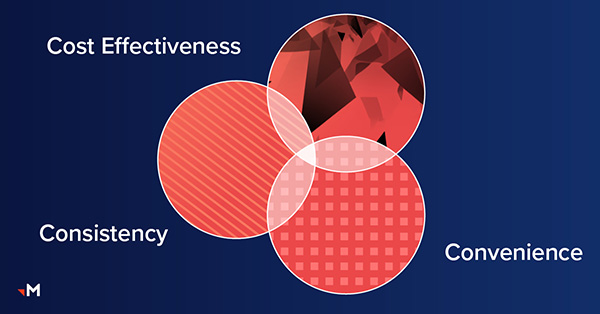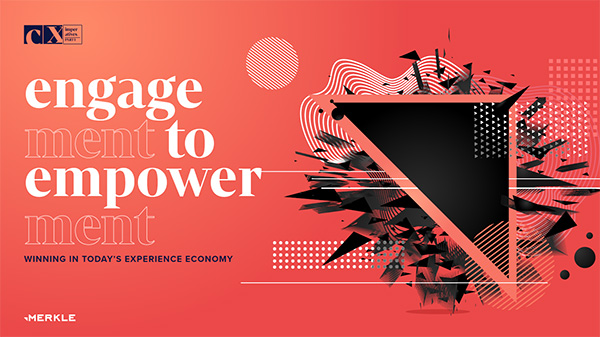From shifting consumer expectations to the rise of innovative technology, auto companies are attempting to navigate a transformative year.
By Daniel Attivissimo, Research Director, North America for B2B International – a Merkle company
As brand leaders refine their strategies and processes, a recent Merkle survey of 2,100 global consumers across 8 industries offers a glimpse into the future of customer experience (CX) within auto.
We asked real consumers about what they expect from brand experiences, from how they prefer to communicate to their attitudes about emerging technology. Here’s what we learned.

When it came to auto consumers, we found that the majority sought out three important values in their future brand experiences: convenience (94% of respondents), consistency of experience (91%) and cost-effectiveness (88%).
When auto brands prioritize a streamlined experience, whether through more efficient online platforms or more convenient in-person interactions, they can foster greater customer loyalty.
A solid digital experience is no longer a nice-to-have feature, in the auto industry it’s a necessity for remaining competitive and relevant. 50% of respondents highlighted the digital experience of a brand’s website as very influential in their choice of brand, tied with salespeople and brand reps, and followed by their peer networks and families (40%).
This underscores the need for brands to ensure they deliver a coherent, interlinked omni-channel experience. This means investing in robust digital platforms, training representatives to provide the best-in-class service, and ensuring the in-person and online experiences both bring the brand to life in a consistent way.
It remains a given that quality is the most important factor for consumers when purchasing a vehicle, with 60% of respondents citing it as their priority. This underscores the need for auto brands to continue innovating and upholding quality to retain customer trust.
The good news is that consumers’ perceptions are changing for the better, with 74% of respondents reporting that brand experiences are generally improving. Brands that strive to deliver superior service are noticing their efforts pay off. Those that don’t focus on continual improvement, risk falling behind.
Loyalty programs and emerging technology, such as AR, VR, and the Metaverse, remain ripe for exploration. 29% of auto consumers have used loyalty programs, but a notable 94% of these respondents reported an improved experience because of these programs.
While we found that only 13% of consumers have experienced AR, VR and the Metaverse, 100% of those who did, reported a positive impact. Auto brands may want to explore utilizing these solutions to engage new customers or existing customers.

Out of all the moments in the consumer journey, customer service/technical support was cited as the journey stage that needs the most improvement, according to 46% of consumers. Coincidentally, this is also the most frequently experienced touchpoint for 45% of respondents.
Brands have a tremendous opportunity to provide added value through aftermarket services, from providing maintenance to delivering spare parts. Not only does it represent a means to improve overall customer loyalty, but it can also open an avenue for generating revenue.
It seems that these days everything is moving toward digital services, from chatbots to automated systems, with a 14% increase in brands delivering digital interactions for the “requesting support” stage. However, there is still a case to be made for the demand for more human interactions, as auto consumers prefer human-led interactions in this stage by a margin of 21%.
While consumers want convenient digital experiences for research and payment, the research shows that they prefer human-led interactions for support. Auto companies would benefit from remembering that digital and physical must work cohesively to deliver an authentic, personalized customer experience.
The stats we shared from our report are just the tip of the iceberg: the full 2024 CX Imperatives research provide a comprehensive roadmap to enhance brand experiences, evaluate feedback, and build customer loyalty.
For auto brands, it’s vital to focus on delivering quality products that meet customers’ ever-growing expectations. But it’s also important to deliver memorable and human experiences that stay with the customer long after their purchase. This may be through loyalty programs that encourage repeat business, innovative tech like AR experiences, or simply customer service that caters to their specific needs.
As the industry continues to evolve in 2025 and beyond, the brands that prioritize customer satisfaction and memorable experiences will have a stronger chance of standing out against the backdrop of competition.

About the Author:
Daniel has over 13 years of experience in market research spanning both b2b and consumer audiences. He leads several global studies that drive strategic insights for clients seeking to improve their customer, brand, and product experience. Daniel’s clients range across several industries including industrial, construction, automotive, financial services, and technology.
A warm welcome to our guest Didi Caldwell, CEO of Global Location Strategies (GLS) and one of the world’s top site selection experts. With over $44 billion in projects across 30+countries, Didi is reshaping how companies choose where to grow. Here she shares insights on reshoring, data-driven strategy, and navigating global industry shifts.